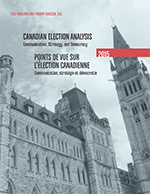Andre Marin/Ombudsman update: if they want a fight, we’ll give them one
I am still fighting the appalling attempt by former Ontario Ombudsman Andre Marin and his senior staff to have me disciplined by the Law Society of Upper Canada – and potentially disbarred – simply for being critical of him on this web site. More here.
They’re not suing me for defamation, I suspect, because they know they’d lose. So they are going after me in a less-public way, presumably because they want to destroy my professional reputation.
This battle will likely go on for many months. If you want to help defray the costs, which will be significant, please use the donate button to the left. (It’s only fair, since Marin’s costs, and that of his senior hirelings, is being paid for by you – the Ontario taxpayer.)
Lawyers and others who want to assist, please email me confidentially at wkinsella@hotmail.com. We can use all the help we can get – and several free speech organizations are now indicating they may do likewise.
Why is this fight important? Well, remember the words of Cory, J., in R. V. Kopyto:
“It is difficult to imagine a more important guarantee of freedom to a democratic society than that of freedom of expression. A democracy cannot exist without the freedom to express new ideas and to put forward opinions about the functioning of public institutions. These opinions may be critical of existing practices in public institutions and of the institutions themselves. However, change for the better is dependent upon constructive criticism. Nor can it be expected that criticism will always be muted by restraint. Frustration with outmoded practices will often lead to vigorous and unpropitious complaints. Hyperbole and colourful, perhaps even disrespectful language, may be the necessary touchstone to fire the interest and imagination of the public, to the need for reform, and to suggest the manner in which that reform may be achieved.
The concept of free and uninhibited speech permeates all truly democratic societies. Caustic and biting debate is, for example, often the hallmark of election campaigns, parliamentary debates and campaigns for the establishment of new public institutions or the reform of existing practices and institutions. The exchange of ideas on important issues is often framed in colourful and vitriolic language. So long as comments made on matters of public interest are neither obscene nor contrary to the laws of criminal libel, citizens of a democratic state should not have to worry unduly about the framing of their expression of ideas. The very life-blood of democracy is the free exchange of ideas and opinions. If these exchanges are stifled, democratic government itself is threatened.
History has repeatedly demonstrated that the first step taken by totalitarian regimes is to muzzle the media and then the individual in order to prevent the dissemination of views and opinions that may be contrary to those of the government. The vital importance of freedom of expression cannot be overemphasized. It is important in this context to note that s. 2(b) of the Charter is framed in absolute terms…The rights entrenched in s. 2(b) should therefore only be restricted in the clearest of circumstances. [Courts and the like] are bound to be the subject of comment and criticism. Not all will be sweetly reasoned. An unsuccessful litigant may well make comments after the decision is rendered that are not felicitously worded. Some criticism may be well founded, some suggestions for change worth adopting. But the courts are not fragile flowers that will wither in the hot heat of controversy. Rules of evidence, methods of procedure and means of review and appeal exist that go far to establishing a fair and equitable rule of law. The courts have functioned well and effectively in difficult times. They are well-regarded in the community because they merit respect. They need not fear criticism nor need they seek to sustain unnecessary barriers to complaints about their operations or decisions.”



